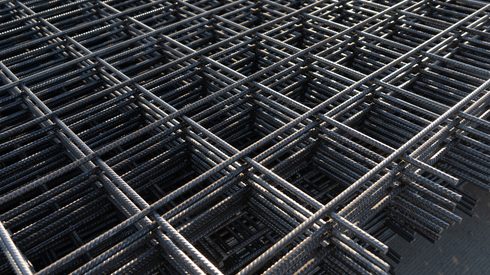The debate between the two oldest candidates to ever compete for the office traveled far and wide from the prepared moderator questions, but the word “steel” appeared just once.
“But do you notice? [Biden] never took out my tariffs because we bring in so much money with the tariffs that I imposed on China,” Trump said, while ostensibly answering a question about the opioid crisis. “He never took them away. He can’t because it’s too much money. It’s tremendous. And we saved our steel industries. And there was more to come, but he hasn’t done that.”
Trade tariffs
The reference to the Section 232 tariffs levied in 2017 was the lone mention for the steel industry. Manufacturing in general got a mention from Biden, in the context of new semiconductor chip plants – in response to a question about concerns over his age.
“As I said, 50 million new jobs, 800,000 manufacturing jobs, more investment in America, over millions – billions – of dollars in private investment and enterprises that we are growing,” he said, in a wavering voice that has been widely commented upon. “We’ve – by the way, we brought an awful lot of people – the whole idea of computer chips. We used to have 40% of the market. We invented those chips. And we lost it because [Trump] was sending people to find the cheapest jobs overseas and to bring home a product.”
Indeed, Biden maintained the existing tariffs on Chinese-origin goods imposed by the Trump Administration in 2018, and even increased the Section 301 tariff rates on Chinese imports, including steel and aluminium, electric vehicles (EVs), semiconductors and advanced batteries in May.
The move, according to the Biden Administration, was to counteract China’s “unfair” trading practices.
The tariff rate on certain steel and aluminum products under Section 301 will increase from 0-7.5% to 25% in 2024, while the tariff rate on EVs under Section 301 will increase from 25% to 100%.
Both candidates blamed the coronavirus pandemic for the high inflation rates that have been plaguing the economy.
Biden said when he became president in 2020, the economy was “in freefall” because of the Trump administration’s handling of Covid-19.
“We put things back together,” Biden said.
Trump blamed the pandemic for throwing a wrench in “the greatest economy in the history of our country” – an oft-repeated claim by the former president.
“We got hit with Covid, and when we did, we spent the money necessary, so we didn’t get hit with the great depression,” Trump said.
High interest rates have forced the hands of smaller service centers from purchasing at their normal levels, because the cost of holding metal has increased, something that Cleveland-Cliffs chief executive officer Lourenco Goncalves noted in a recent public appearance.
The construction industry, for example, has been affected by high interest rates, resulting in slow take off for projects.
A steely reaction
Few of the steel executives polled by Fastmarkets following the debate were satisfied with the performance of either candidate. Trump’s falsehoods and Biden’s weak appearance sparked a general sense of disgust between the two choices. Few said they sat through the whole debate.
“I watched most of the debate and concluded we are an embarrassment in the eyes of the world,” one service center executive said. “Too bad the show couldn’t be shortened to lessen the embarrassment that President Joe brought onto himself…In summary, we better get much smarter in November.”
Another buy-side source said he and his wife quickly decided to watch something else.
“It is hard to believe that of the millions of US citizens qualified, this is the best we got running for the highest office in the country,” he said.
A second service center executive was withering in his assessment of the debate performance of both candidates.
“Well, if you’re the one who looks like he may struggle to remember his own name sometimes, I can’t imagine you’re good for the steel industry or any other industry for that matter,” the second service center source said, adding that, “the alternative doesn’t make me real warm and fuzzy either.”
An auto industry executive complained that steel “was mentioned only once and passed over very quickly, with insufficient discussion.”
“Fully expect a Trump win to double down on tariffs and other nations to react with their own measures,” the auto executive said. “The age of globalization has indeed ended. Now we face recurring trade-offs between policy and counterpart reactive policies. The US steel industry should get quite a bit of support with either candidate, but likely more from Trump versus Biden.”
We provide more than 250 steel prices, including industry benchmarks from across the globe. Fastmarkets’ steel price data combines the intelligence of industry-leading brands such as Metal Bulletin, American Metal Market, Scrap Price Bulletin and Industrial Minerals. Talk to us about our steel price data options today.






